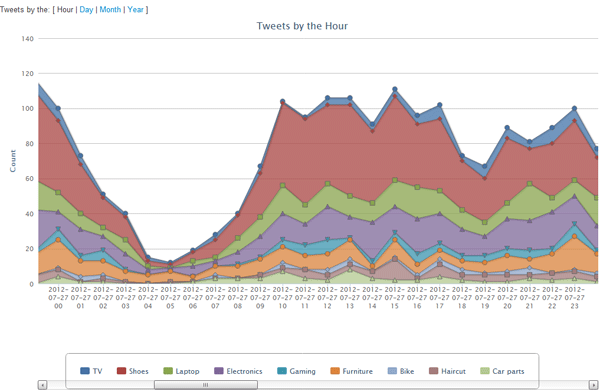A Data Driven Approach to Building a Startup
It's easy to brainstorm your next business idea and imagine hockey stick curves of success on your white-board or in the confines of a coffee shop where you think your idea could very well be the next Google or Groupon. In the absence of data human beings are led by their personalities, so some will be either pessimistic, optimistic or just plain old neutral. Don't mistake enthusiasm for data. In my startup's latest pivot, we were testing out a hypothesis and made huge assumptions about the size of the market and the products the market was demanding. Everyone, including myself, made the same bold assumptions, projecting their personalities on the imaginary consumer. While it would have been more effective if we had some in-depth user profiles to pass our idea by, we had even better - actual users. Customer validation can make or break your best business idea. And the faster you get it in front of real customers, not friends and family, the faster you can test your assumptions and move on.
To test the market size, I wrote a simple web application (okay, simple for me... it involved data mining, lexical analysis, natural language processing, map reductions and so forth) to capture user sentiment on the products we were looking to pitch in front of users in the media that we were looking to pitch it - Twitter. By narrowing our focus to the United States we were able to track daily user desire for new products. A graph of the tweets by hour is shown below.

While this exercise was useful for scientific purposes, and the engineer in me would love to delve even deeper into the data to find other patterns, we did notice something right off the bat - the very low hourly tweet count for the products we were looking to pitch. We weren't simply measuring mentions of the keyword, but an actual sentiment analysis for users who were ready to buy the new product. So while we could spend weeks analyzing the data and ooing and ahhing over trends, or the fact that people tweet about personal needs during working hours and between primetime and midnight, the numbers were so insubstantial there was little to motivate even the most enthusiastic member of our team.
Without hard data, we could've spent weeks and months building a product for a market that was too small, and making a product that no one wants. We were also testing another hypothesis at the same time to see how easy it would be to attract customers as part of our minimum viable product, that was also a flop. However the fact that we were able to do all of this in a week was amazing to me. I've seen many companies spend weeks and months thinking through an idea and sometimes even bringing it to market without ever asking if users want it. Surely if making a minimum viable product takes as long as building your product, then bring your full product to market in a couple days. However most business ideas take more than a couple days to bring to market.
Get out there and talk to customers. Or in this day of public online social expressions, simply tap into the social networks and listen to what people are saying and see if it matches up with your hypothesis. Let the data lead you, not your assumptions.
One interesting tidbit from our little exercise, is that although people are a expressing a small number of needs online, the most ripe market is actually in shoes. Zappos if you're listening - there's a market here for you!
As for me and my team, we're going to learn and move on. This is all part of building a lean startup.